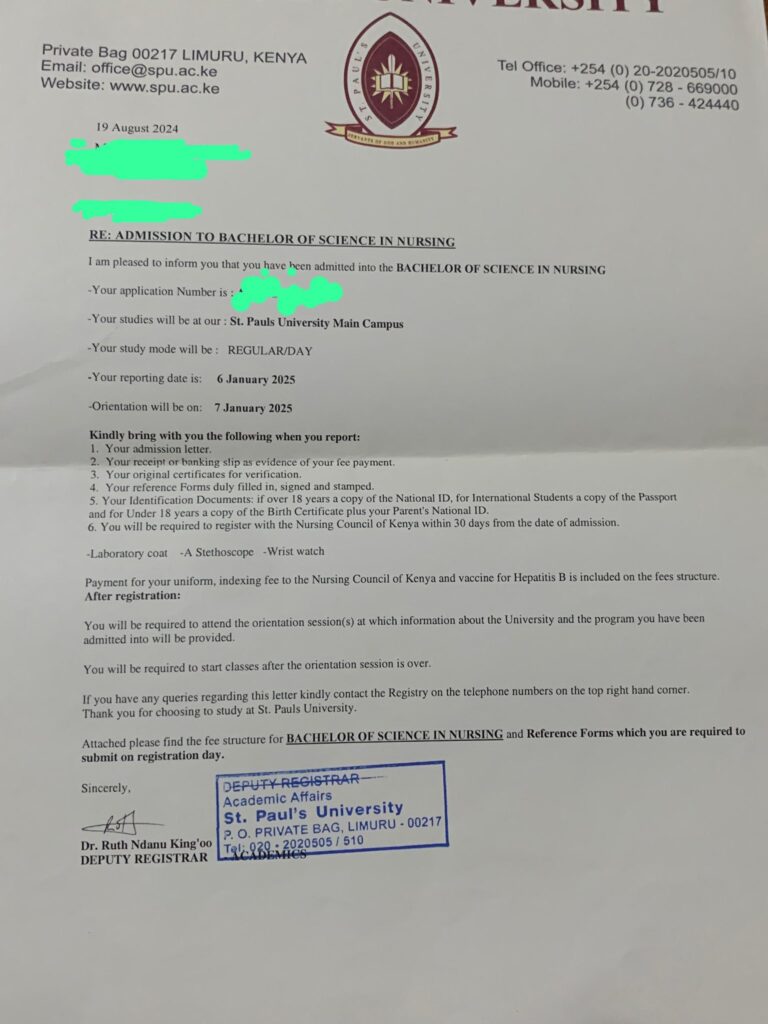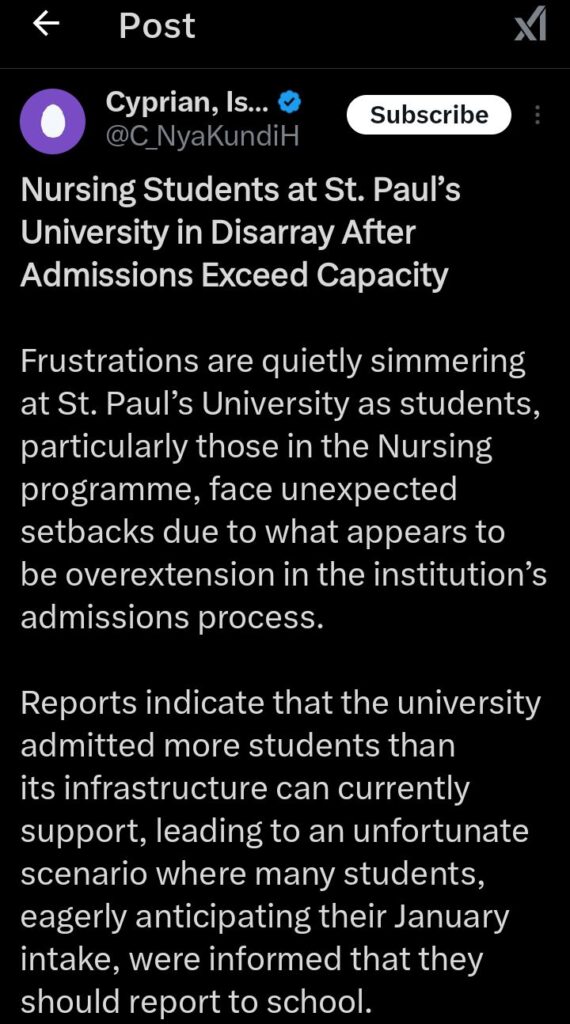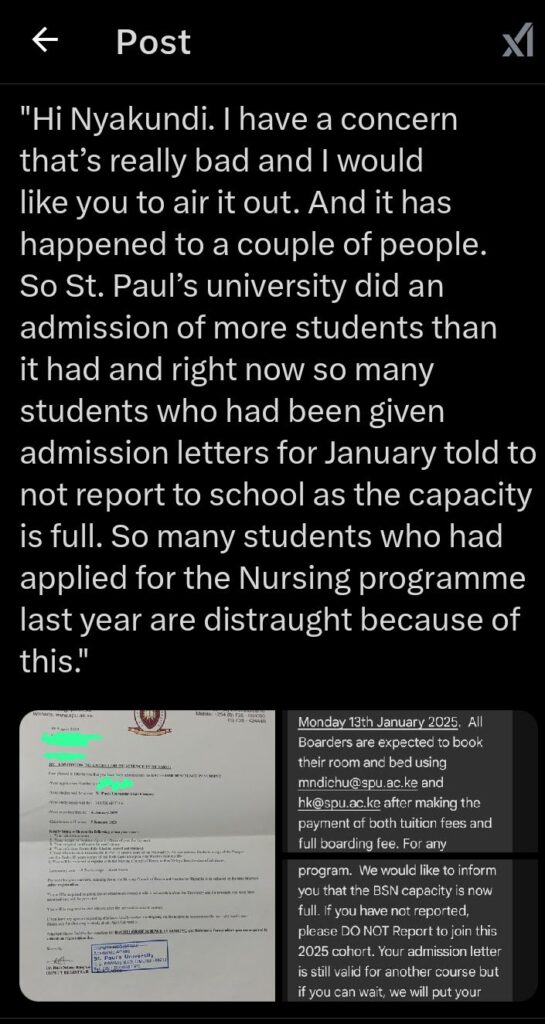Frustrations are quietly simmering at St. Paul’s University as students, particularly those in the Nursing programme, face unexpected setbacks due to what appears to be overextension in the institution’s admissions process.
Reports indicate that the university admitted more students than its infrastructure can currently support, leading to an unfortunate scenario where many students, eagerly anticipating their January intake, were informed not to report to school.

Cyprian Is Nyakundi, a well-known blogger, exposed the issue through his X platform after receiving a message from a concerned individual.
The message detailed how several students who received admission letters for the January intake were later told that the university did not have enough capacity to accommodate them.
The concerned party wrote, “Hi Nyakundi. I have a concern that’s really bad and I would like you to air it out. And it has happened to a couple of people. So St. Paul’s University did an admission of more students than it had and right now so many students who had been given admission letters for January are told not to report to school as the capacity is full. So many students who had applied for the Nursing programme last year are distraught because of this.”

This revelation has sparked outrage among students and their families, who feel betrayed after trusting the university’s admission process.
Many students had invested much time and resources in preparation for the academic year, only to have their plans abruptly disrupted.
For nursing students, this setback is particularly damaging, as it may force them to delay their education or look for alternative institutions, a process that is both competitive and costly in Kenya.

The lack of planning and accountability by St. Paul’s University raises serious concerns about its management and commitment to students.
Over-admitting students without the necessary infrastructure not only disrupts lives but also casts doubt on the institution’s ability to uphold academic standards.

Cyprian Is Nyakundi’s exposé has brought much-needed attention to this issue, highlighting the need for immediate action to address the affected students’ plight and prevent similar incidents in the future.


